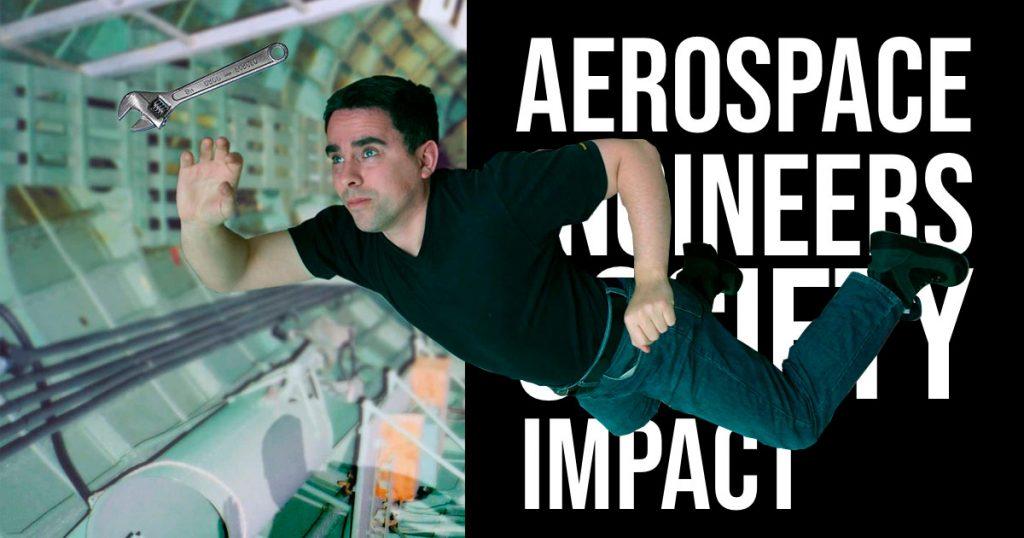Aerospace. It sounds like a big, fancy word, right? Well, it is! But it’s not as complicated as it may sound. When we talk about aerospace, we’re referring to everything that encompasses the Earth’s atmosphere and the space beyond it. It’s all about airplanes soaring in the sky, satellites orbiting around our planet, and rockets venturing out into the vast expanse of space.
Now, who makes all these amazing things possible? Enter aerospace engineering, the superhero behind the scenes. Aerospace engineering is the field that designs and creates all those aircraft and spacecraft that make exploration and travel possible, both within our atmosphere and beyond.
An aerospace engineer is like an architect and builder rolled into one, but for aircraft and spacecraft. They use their deep understanding of physics, mathematics, and materials to create vehicles that can fly high in the sky or travel deep into space. According to the U.S. Bureau of Labor Statistics, there were approximately 63,800 aerospace engineering jobs in 2022, showing the scale and importance of this profession.
Becoming an aerospace engineer isn’t a walk in the park, though. You need a strong foundation in science and math, typically gained through a bachelor’s degree in aerospace engineering or a related field. It’s a challenging journey, but for those with a passion for flight and space, it’s definitely worth it!
The Crucial Responsibilities and Skills of an Aerospace Engineer
Aerospace engineers are a bit like the superheroes of the sky and space. They have a wide range of important responsibilities and need a specific set of skills to carry them out effectively.
Designing Aircraft and Spacecraft
This is the bread and butter of an aerospace engineer’s job. They dream up and design everything from commercial airplanes to unmanned drones and from satellites to space shuttles, using their deep understanding of aerodynamics and materials science.
Testing Designs
Once they’ve created a design, it’s time to put it to the test. Aerospace engineers conduct simulations and physical tests to make sure their designs are safe and will perform as expected under various conditions.
Problem-Solving
Things don’t always go as planned, and when they don’t, it’s up to the aerospace engineer to figure out what went wrong and how to fix it. This requires strong analytical skills and attention to detail.
Project Management
Many aerospace engineers lead projects, which involves planning, coordinating team members, managing budgets, and ensuring deadlines are met. Good leadership and communication skills are essential for this part of the job.
Research and Development
The field of aerospace engineering is always advancing, and it’s the job of aerospace engineers to help push it forward. This involves staying on top of the latest research, developing new technologies, and finding ways to apply them to their designs.
Ensuring Compliance with Standards
Safety is paramount in aerospace engineering. Engineers must ensure that all designs meet industry safety standards and regulations, which requires a thorough understanding of these rules and a commitment to high ethical standards.
The Importance of Aerospace Engineers in Society and the World
Aerospace engineers do a lot more than just design cool-looking aircraft and spacecraft. Their work has far-reaching implications for society and the world as a whole.
Enabling Transportation and Communication
Aerospace engineers design airplanes that allow us to travel long distances in short periods of time and the satellites that enable global communication. Without their work, our interconnected world would look very different!
Advancing Space Exploration
The spacecraft that aerospace engineers design and build help us explore the universe. Whether it’s sending astronauts to the International Space Station or rovers to Mars, these missions increase our understanding of space and inspire future generations of scientists and engineers.
Enhancing National Security
Many aerospace engineers work on defense projects, designing aircraft, missiles, and satellites that are used for national security purposes. Their work is crucial to protecting nations and maintaining peace.
Promoting Environmental Sustainability
Aerospace engineers are at the forefront of developing more fuel-efficient aircraft and exploring the potential of renewable energy sources in aviation, which is important in the fight against climate change.
Creating Jobs and Driving Economic Growth
The aerospace industry is a major employer and contributes significantly to economic growth. According to the Aerospace Industries Association, the U.S. aerospace and defense industry supported more than 2.1 million jobs and generated $100.4 billion in exports in 2021.
Inspiring Innovation
The challenges faced by aerospace engineers often lead to technological breakthroughs with applications beyond aerospace. For example, technologies originally developed for space exploration have led to advancements in medicine, transportation, and other industries.
The Leading Edge of Innovation in Aerospace Engineering
Aerospace engineering is undoubtedly a beacon of innovation. It’s a field that consistently breaks barriers, whether it’s about creating more efficient airplanes, forging reusable rockets, or venturing into the unexplored corners of our solar system.
Sure, the journey isn’t always smooth. The intensity of academic training, the intricacies of aerospace systems, the relentless need for problem-solving, and the imperative to adhere to safety regulations—all these can be quite challenging. But remember, challenges often pave the way for remarkable achievements.
Despite the hurdles, choosing a career in aerospace engineering is worth every bit of effort. First off, it’s a profession that plays a crucial role in our society and the world at large. The contributions of aerospace engineers significantly impact areas like transportation, communication, national security, and even environmental sustainability.
Moreover, it’s a field that allows you to participate in some of the most thrilling and groundbreaking projects of our era. Imagine being a part of a team that designs a spacecraft for a Mars mission or a drone that delivers lifesaving medical supplies to far-flung regions.
And let’s not forget the personal fulfillment that comes from solving complex problems and seeing your solutions take flight – literally! Whether it’s an airplane zipping across the sky or a satellite orbiting Earth, few careers offer the opportunity to leave such a tangible mark on the world.
